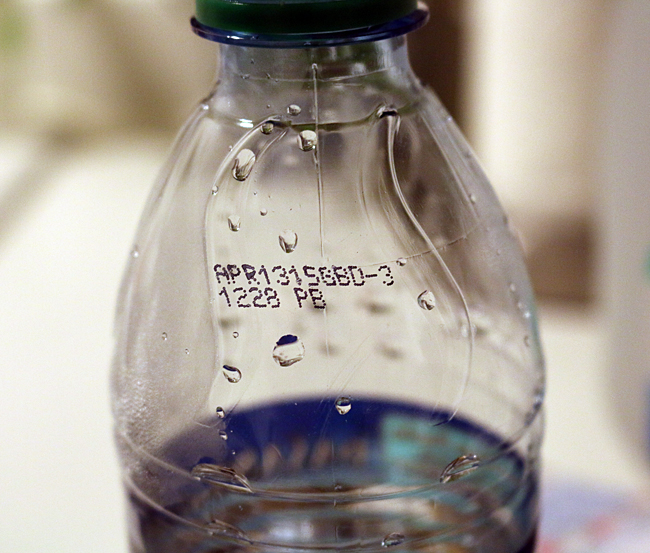Note: This article was originally published on Wednesday, June 8, 2016 at 6:15 in the evening and has been updated.
I have joked in the past about expiration dates printed on bottles of water — such as in this article that was published on Wednesday, September 24, 2014 — wondering exactly what happens to water when it expires. Does it curdle? Will it completely evaporate? Does the water eventually get watered down? Should you stock up on powdered water — just add water to hydrate it — instead of liquid water?
Your Bottle of Water Expired. Is It Still Safe to Drink?
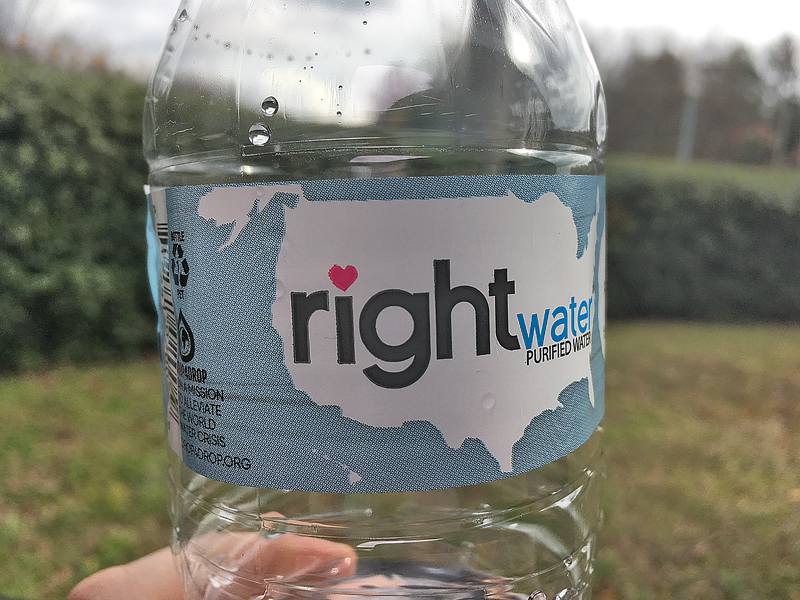
The short answer is that water is generally safe to drink after it expires — especially if it is stored properly. The likelihood that you will get sick — or even die — from consuming expired water is negligible at best…
…but regardless, there are still concerns to be associated with “expired” water.
Antimony and Bisphenol A
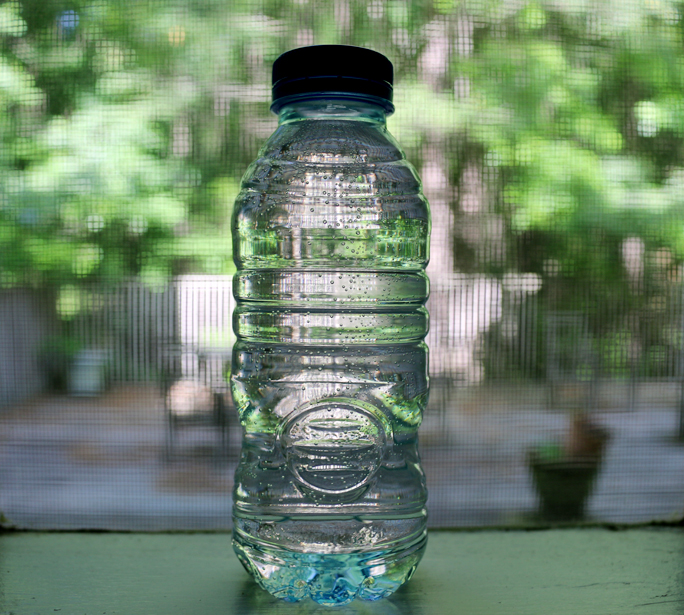
Higher levels of a trace heavy metal known as antimony apparently leach into the water from the plastic of the bottle when the temperature increases, as mentioned in the aforementioned article. If you leave a plastic bottle of water in such environments as a hot car or in a warehouse with little to no climate control where cases of the water could be stored for an undetermined period of time, you could be at a higher risk of contracting lung, heart, and gastrointestinal diseases; and one form of the metal — which is known as antimony trioxide — has been classified as a possible carcinogen.
Bisphenol A — which is better known as BPA — is a chemical found in polycarbonate plastics and epoxy resins which can mimic estrogen in the body. Bisphenol A is safe at the very low levels which occur in some foods based on review of hundreds of studies by the Food and Drug Administration of the United States; but the agency banned it for use in conveyances of drinkable liquids specifically designed for use by babies and children.
“Polycarbonate plastics are often used in containers that store food and beverages, such as water bottles. They may also be used in other consumer goods”, according to this article from the Mayo Clinic, which also gives advice on how to reduce your exposure to bisphenol A if you are concerned about your intake of the chemical. “Epoxy resins are used to coat the inside of metal products, such as food cans, bottle tops and water supply lines. Some dental sealants and composites also may contain BPA.”
Dust, Microbes, and Funky Taste
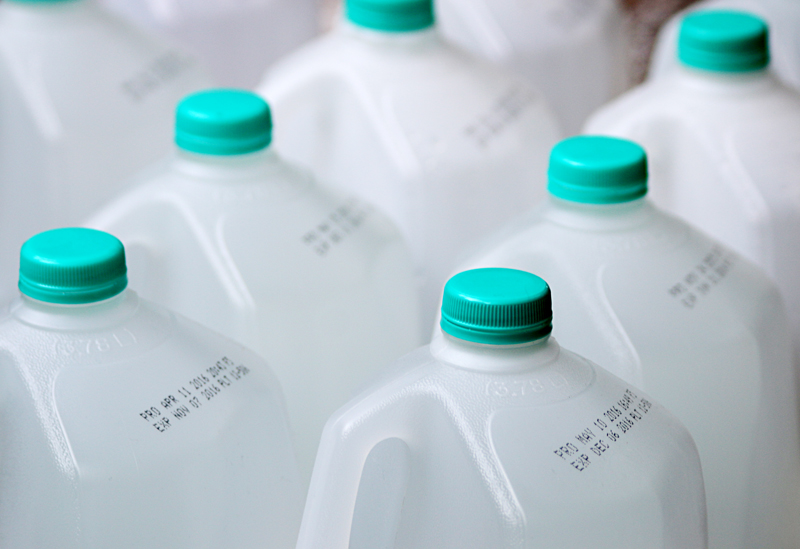
If you have ever taken a sip from a glass of water that was left out overnight from the previous day, you probably noticed that it tasted a little funky. You might suspect that the water started to spoil; but the funky taste is actually the water becoming slightly more acidic because it was exposed to air and became the home of dust, microbes, and other particles and organisms. The water is likely still safe to drink for another day or so as long as it was not outside — but its quality will continue to deteriorate over time.
At least 14 outbreaks associated with bottled water have been documented since 1973, according to the Centers for Disease Control and Prevention of the United States. The National Center for Emerging and Zoonotic Infectious Diseases of the agency has a tool called the BEAM Dashboard — BEAM is an acronym for Bacteria, Enterics, Ameba, and Mycotics — which is an interactive tool to access and visualize data that track enteric bacterial agents, viral agents, parasitic agents, and other diseases that are foodborne, waterborne, and fungal.
Additional information and details pertaining to bottled water is outlined in this document from the Environmental Protection Agency of the United States.
Final Boarding Call
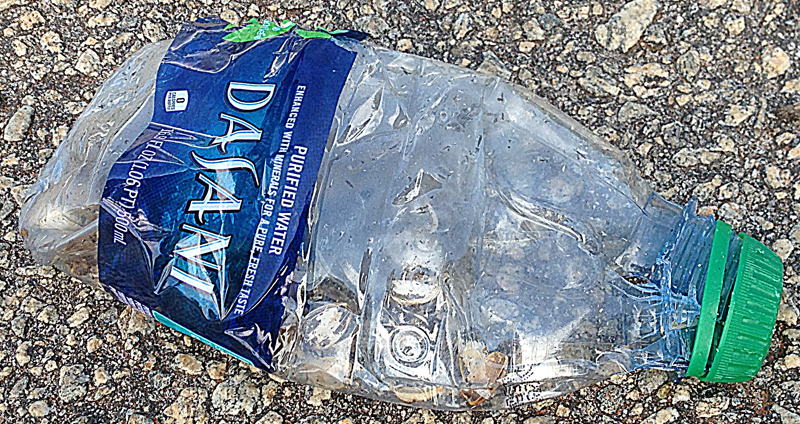
You are bound to encounter a significant amount of bottled water during your travels; and you might find yourself carrying at least one around with you for a couple of days or so — especially in locations where potable water may not otherwise be readily available. As long as bottled water is stored in cool dark places — out of direct sunlight or high heat as two of numerous examples — it can be safe to consume for a very long time. Ensure that it is stored away from such toxins as pesticides and gasoline; and that each bottle is not compromised.
Raise that bottle of water and drink up — even if it is expired. I would advise that you do not treat milk similarly, however.
Cheers.
All photographs ©2014, ©2016, ©2017, and ©2020 by Brian Cohen.
